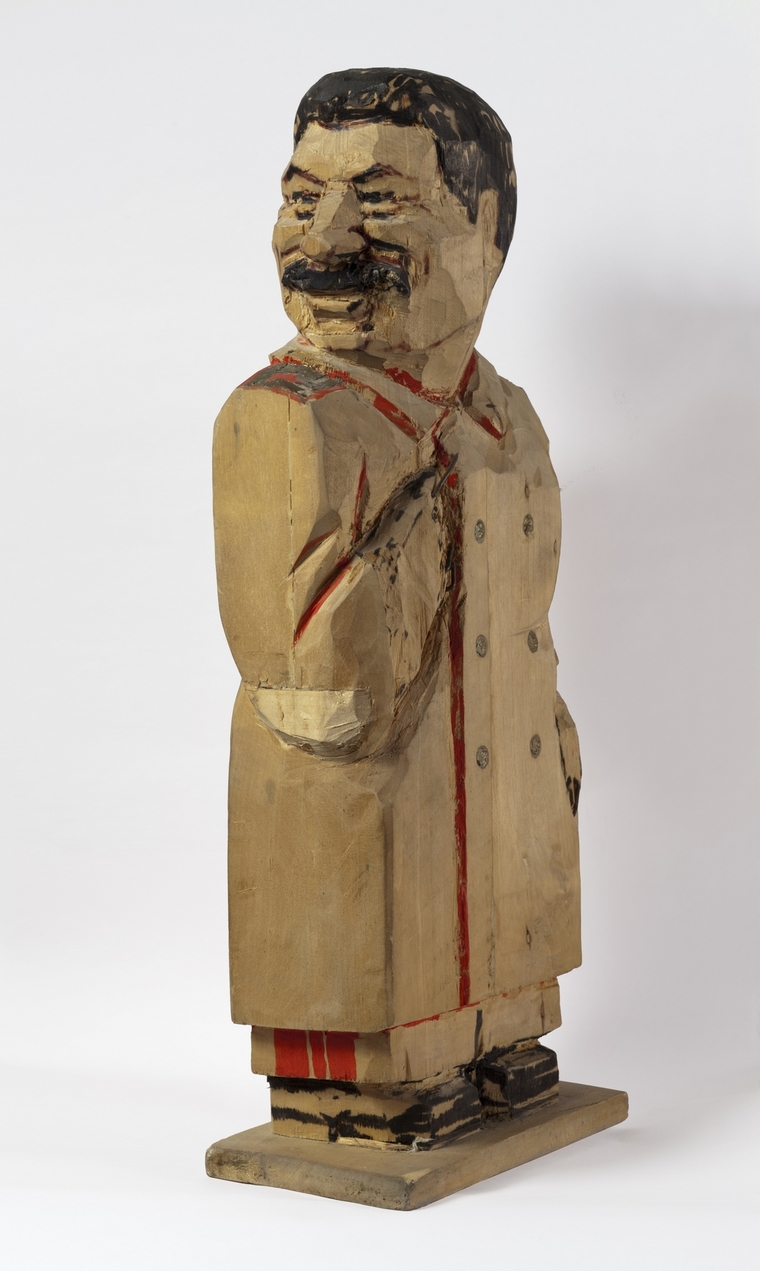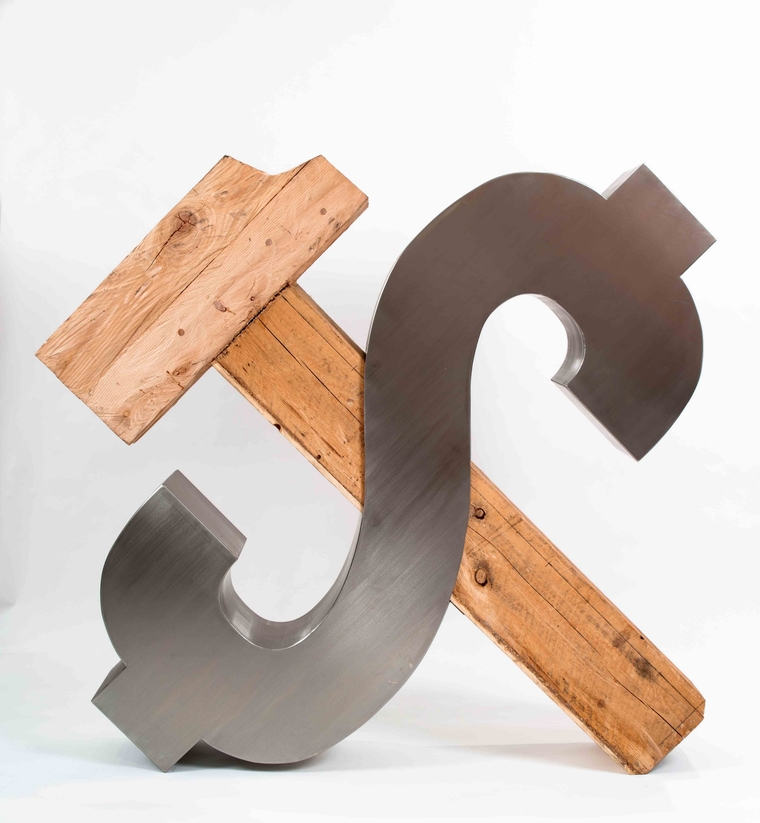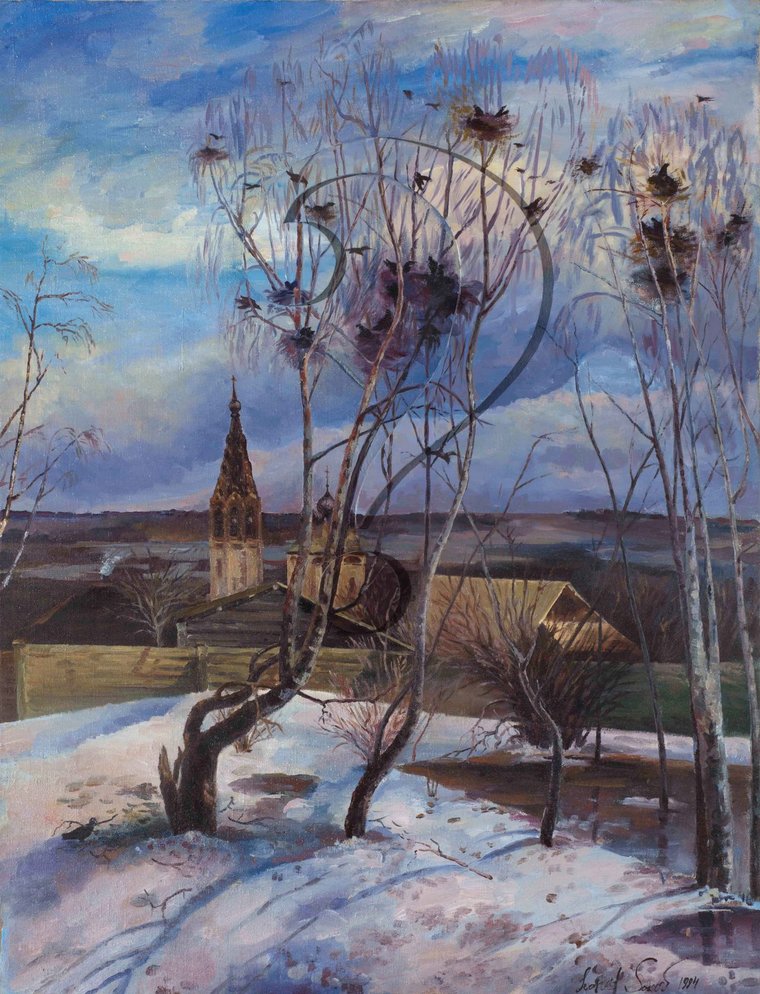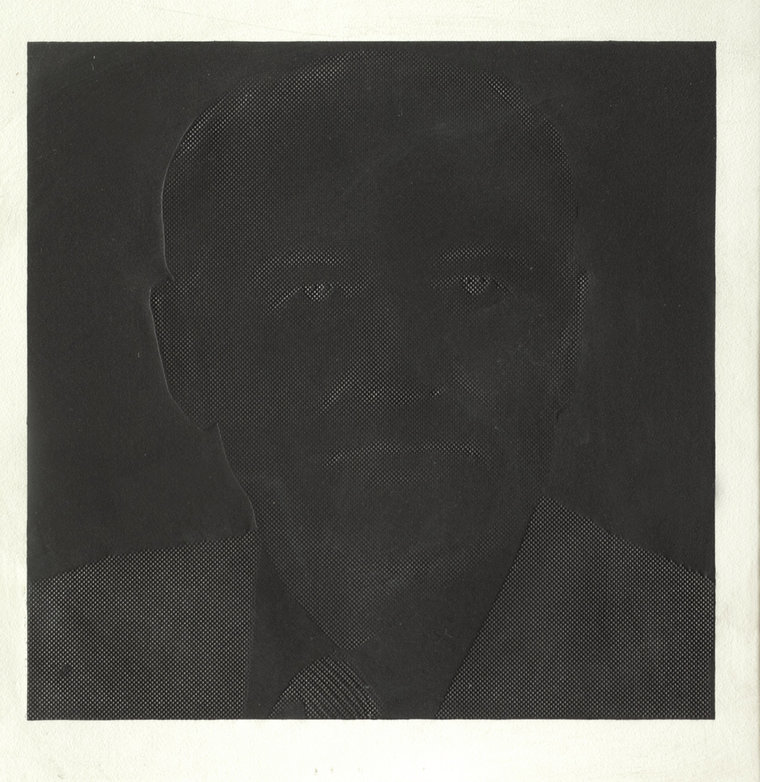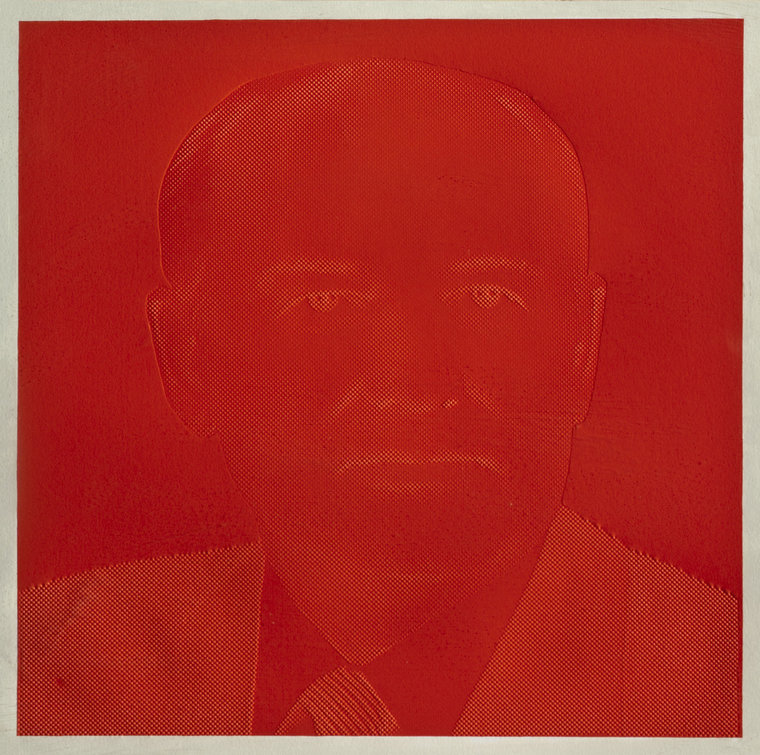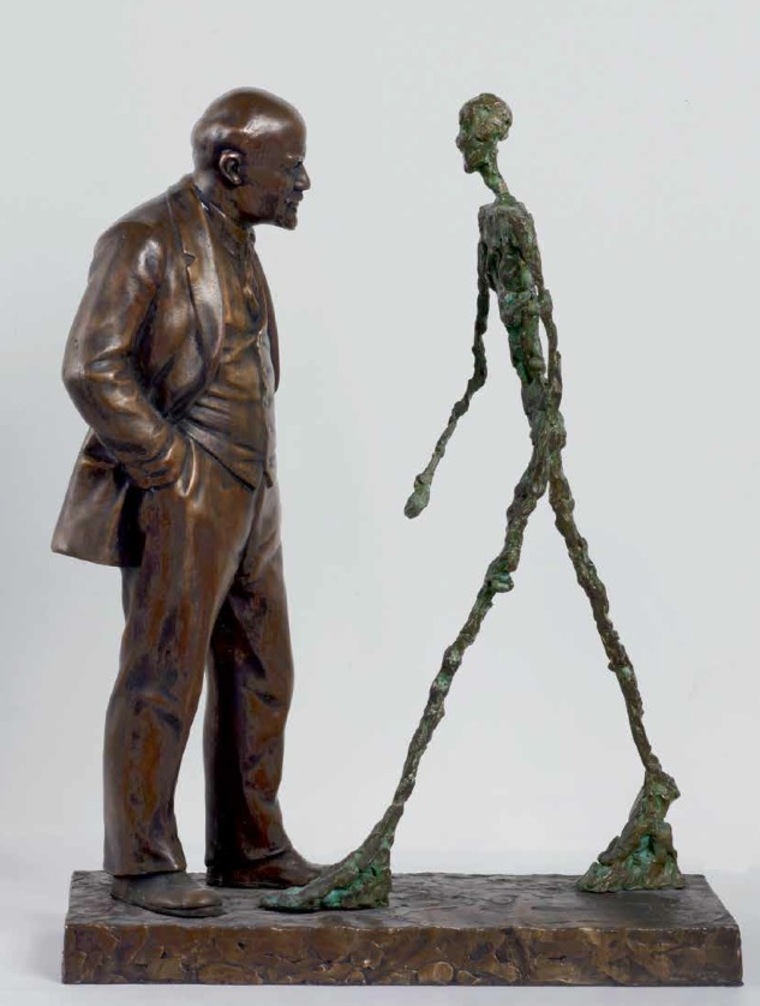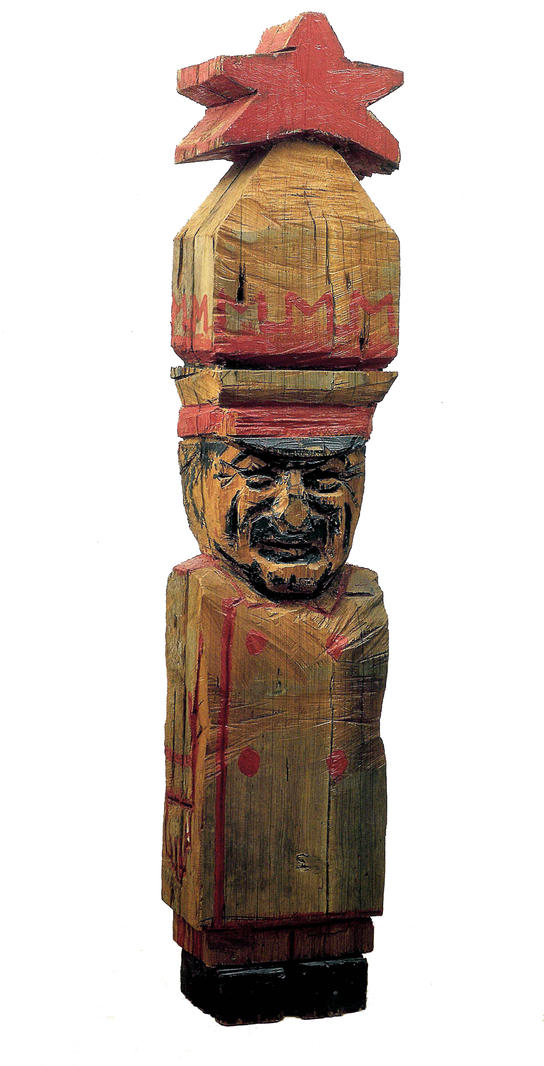
Leonid Sokov was one of the main representatives of Sots-Art, in the 1970s and 1980s he deconstructed the bored to nausea socialist realism. But Sokov was engaged in Sots-Art, as such, already in emigration. In Moscow, he was more concerned about absurdity, kitsch and banality, over which he successfully mocked. Even then he decided that «it would be interesting to look at the world through the eyes of an average Soviet man». And when in 1979, Sokov moved to New York, he soon realizes: there is no point in adapting to a new reality, completely different from Soviet reality, but he needs to continue Moscow game. Moreover, he was distinguished by a special «popular manner»: back in the 1970s, Sokov started to study primitive art and move away from academic sculpture towards primitive forms of root cultures, and then consistently developed this line of creativity.
In 1983, a wooden series «The History of the USSR» appeared, which depicted Soviet leaders in the form of traditional folk toys: Khrushchev-nevalyashka, Stalin and Hitler, beating with hammers on the globe, Andropov with moving ears. Here and further in his work, Sokov, as the art critic Andrei Erofeev writes, tries on himself the way of thinking and the plastic ability of a certain carrier of pagan totem consciousness. This lyrical hero or «character» sees Soviet ideological reality as a collection of totems, including images of leaders with personal attributes. Sokov likened the leaders of the USSR to such leaders who are loved, feared, parodied and hated at the same time. He gave the role of the chief ancestor to Stalin, and Sokov appointed a bear — the king of animals in Russian folklore as his animal alter ego in his mythology. By the mid-1980s, the figure of the generalissimo occupies a strong place in Sokov’s iconography.
The wooden «Red Idol» is a classic Sokov. The artist combines his favorite techniques: deliberately rough wood work that is barely touched by paint. The result is a cross between an archaeological find and a folk toy. We have before us a concentrated image of the recent past: the red idol is none other than Stalin, that gazes with an ominous grin out from under his cap. An exaggeratedly small Stalin is stressed by the spire of the Spassky tower with a huge red star. Its form, coupled with the «dovetails» of the Moscow Kremlin, resembles a kind of crown — to match the totem leader. But here Sokov also imposes an invited by him image of Stalin's natural personification: the shape of the sculpture resembles a lubok wooden bear. And now the «great leader» becomes a true hero of the lower peasant folklore. V
